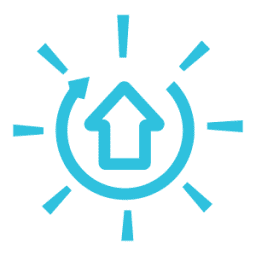What is the difference between landline, cellular, and internet home security systems?
Let’s start by breaking down your options. The three most common and recommended options for home security systems are landline, cellular and Internet-based systems.The primary difference between the systems is the way the systems are connected to, or communicate with, the monitoring provider.
Landline Based Home Security:
Landline Home Security Systems have the longest history but the majority of Americans are faced with a dilemma as they move away from paying for a traditional phone line. The consistency that landline systems offer may be reason enough to keep a landline system at your home just a little bit longer. Traditional phone lines use copper lines to send communication signals to the monitoring company. Home security systems that use traditional phone lines are historically the most reliable because of their resilience during power outages. However, there are a few negative factors to consider. The dial-up service sometimes has a slower connection, less bells and whistles of the wireless systems and burglars are notorious for finding the landline wires and cutting them to prevent functionality. These systems can also be more expensive because of installation fees and the cost of paying for a landline.
Cellular Based Home Security:
Cellular monitoring is known to be the most secure of the options. Cellular security systems work similarly to your cell phone. A cellular module is installed in your control panel and it sends signals wirelessly to the monitoring station using cellular towers. There is no need for a landline or Internet connection for the security system to work, which makes it nearly impossible for intruders to defeat them. Cellular home security systems send signals wirelessly.
Both cellular and internet based systems allow you to have remote access to your system. This is a big benefit given that many robberies occur because people forget to set their alarm before they leave the house. Cellular monitoring is typically the most expensive but if you don’t pay for a landline service you can sometimes counter the cost. Ask about a dedicated cellular communication plan to prevent jamming – a device used to disable the cell phone signal of your system.
Internet-Based Home Security:
Internet monitoring is the least expensive option and was initially created as a supplemental system. These systems are connected through the home wifi and typically offer the most “feature-rich designs”. With remote access and alerts wifi based systems can be desirable but be warned that they are the most unreliable communication method. Wireless monitoring was originally developed intending to be backup during blackouts, home phone outages, or other defects; they work wonderfully for those outages, however, if you only have an internet security system your whole system would be disabled and cut off from monitoring during common internet outages, leaving your home vulnerable. Peak usage hours with internet companies also commonly create issues with unpredictable problems with alarm signals and weak connections. Wifi/Internet systems are typically self-install, which can be convenient and less expensive, however, some systems are not designed for larger homes and you might find trouble getting proper signals throughout your home.
Features that are not always included in home security systems but are worth looking into.
- Glass Break Sensor- Glass break sensors are mounted on walls or ceilings. Security Cameras- Usually cameras are placed near major entrances to detect possible intruders as well as in hallways and rooms on the first floor mainly functioning as a deterrent.
- Garage Door Sensor- These sensors automatically detect unauthorized access to your garage.
- Motion Detectors- Motion detectors detect any movement within a set area.
- Auto Dispatch Button- This trigger immediately sends emergency services to the home.
- Energy Consumption Automation- ECA allows you to remotely access and control lighting, thermostat and, in some cases, small appliances.
The team at My Utilities will research your home and educate you on all your home security options. After you select a provider we will make all the connections so you don’t have to hassle with the setup process. Find a home security provider here, or by calling 888-554-4609.

